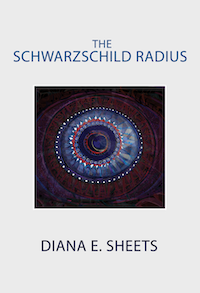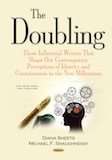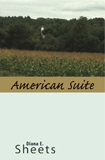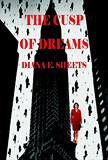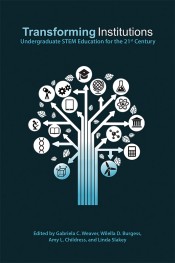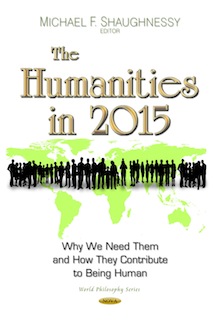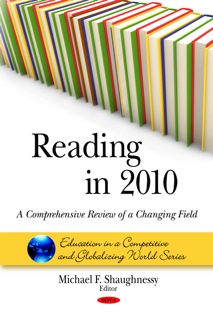Reading and Thinking Critically in the Age of Disputation, Part III
Part III of “Reading and Thinking Critically in the Age of Disputation”. This essay on critical thinking will be serialized in three parts. It is available in an edited collection Critical Thinking and Higher Order Thinking: A Current Perspective edited by Michael F. Shaughnessy and published in 2012 by Nova Science Publishers. A “read only” version of this essay, provided it is intended for noncommercial purposes, may be accessed from my Literary Gulag website, http://www.literarygulag.com/Critical-Thinking.pdf. All copyright permissions must be obtained from the publisher.
Diana Sheets
English and History Departments,
University of Illinois
Dedicated to Max Weismann, Chairman of the Great Books Academy and Will Fitzhugh, Editor and Publisher of The Concord Review.
Conclusion
Let us accept the premise that critical thinking is a methodological approach to which all scholars and thinkers aspire. Nonetheless, by the late 1980s critical thinking on campuses was on the wane as “progressive” groupthink rejected the Western Canon and academic scholarship based on truth and excellence in favor of identity politics and social justice. It is important to acknowledge that worldview will determine the values that will frame perceptions as to what constitutes a good or bad argument. For this reason critical thinking is much more difficult to engage in than we might think. Let us also concede that someone trained in critical thinking appears more capable of undertaking a research project and presenting the basis of a good argument than an individual who has not been taught these stratagems. However, the mastering of a technique absent substantive knowledge of a discipline unmasks the facile nature of the enterprise. The result is someone who potentially looks smarter and presents a better argument by means of methodological rigor without ever immersing him or herself in the intellectual concepts under consideration (Caleb Nelson, “Harvard’s Hollow ‘Core’” A Widely copied Core Curriculum Illustrates the Futility of Trying to Teach Students to Think Like Scientists”, The Atlantic, September,1990, Vol. 266, Issue No. 3, pp. 70-80).
Where once scholars might have grappled with ideas for years simultaneously weighing contradictory beliefs and arguments while suspending personal judgment, today’s academics are much more apt to rely on critical thinking techniques to deflate oppositional perspectives, thereby short circuiting this meaningful endeavor. Thus, the challenging and at times painful journey of discovery to confront and, if need be, reject one’s deepest, most cherished beliefs is sabotaged at the outset.
Let us also acknowledge that critical thinking provides us with resources with which to tackle a problem although, strictly speaking, it is not a discipline. To use critical thinking effectively one must have expertise in at least one subject area and then apply the methodological techniques of critical thinking to that discipline. Otherwise, one quickly becomes a gadfly deconstructing arguments absent an interpretative perspective with which to engage intellectual concepts.
Finally, let us dare to question whether having jettisoned our cultural and historical foundations in favor of short-sighted political agendas whether our students today possess even the ability to read anything but the simplest thoughts on a page, let alone the potential to engage in critical thinking. Without being steeped in a world of words, without understanding the ideas and writings of our greatest intellectuals, critical thinking is divested of all meaning: Its techniques achieve a pyrrhic victory in the classroom or the university at the expense of centuries of accumulated wisdom.
References
Aboujaoude, Elias. (2011). Virtually you: the dangerous powers of the e-personality. New York: W. W. Norton & Company.
Adler, M.J. & Van Doren, C. (1972). How to read a book. New York: Simon and Schuster.
Alter, R. (1996). The pleasures of reading in an ideological age. New York: W. W. Norton & Company.
Annual internet survey by the center for the digital future finds shifting trends among adults about the benefits and consequences of children going online. (2008). Center for the Digital Future. Retrieved April 15, 2011, http://www.worldinternetproject.com/_files/_Published/_oldis/2008-Digital-Future-Report-Final-Release.pdf.
Arum, R. & Roksa, J. (2011). Academically adrift: limited learning on college campuses. Chicago: The University of Chicago Press.
Average tv viewing for 2008-09 tv season at all-time high. (2009, November 10). Nielsenwire. Retrieved March 6, 2011, http://www.nielsen.com/us/en/newswire/2009/average-tv-viewing-for-2008-09-tv-season-at-all-time-high.html.
Baldasty, G.J. (2007). Newspaper groups. S.L. Vaughn (Ed.). Encyclopedia of american journalism (pp. 354-357). New York: Routledge.
Bauerlein, M. (2008). The dumbest generation: how the digital age stupefies young americans and jeopardizes our future. New York: Jeremy P. Tarcher/Penguin.
Bloom, A. (1987). The closing of the American mind: how higher education has failed democracy and impoverished the souls of today’s students. New York: Simon and Schuster.
Bloom, H. (1994). The western canon: the books and school of the ages. Boston: Houghton Mifflin Harcourt.
Bromund, T.R. (2011, February 16). Conservatives in academia. Commentary’s blog. Retrieved February 25, 2011, http://www.commentarymagazine.com/2011/02/16/conservatives-in-academia.
Browne, M.N. & Keeley, S. M. (2007). Asking the right questions: a guide to critical thinking (8th ed.). Upper Saddle River: Prentice Hall.
Cavallo, G. & Chartier, R. (Eds.). (1999). A history of reading in the west. (Lydia G. Cochrane, Trans.). Amherst: University of Massachusetts Press.
Crain, C. (2007, December 24). Twilight of the books: what will life be like if people stop reading? The New Yorker, 83, No. 41, pp. 134-139.
Darnton, R. (2009). The case for books: past, present, and future (pp. 21-41). New York: PublicAffairs.
Define critical thinking. (n.d.). YourDictionary.com. Retrieved February 22, 2011, http://www.yourdictionary.com/critical-thinking.
Dillon, S. (2011, January 8). A champion of the student writer: former teacher showcases the dying art of the research paper. The New York Times, National, Section A, pp. 10, 13.
Grafton, A. (1999). The humanist as reader. In G. Cavallo & R. Chartier (Eds.), A history of reading in the west (pp. 179-212). Amherst: University of Massachusetts Press.
Jaschik, S. (2011, January 18). Academically adrift. Inside Higher Ed. Retrieved February 25, 2011, http://tinyurl.com/67gpbzd.
Jaynes, J. (1976). The origin of consciousness in the breakdown of the bicameral mind. Boston: Houghton Mifflin Company.
Kernan, A. (1990). The death of literature. New Haven: Yale University Press.
Kernan, A. (1997). What’s happened to the humanities? Princeton: Princeton University Press.
Kimball, R. (2008). Tenured Radicals: How Politics Has Corrupted Our Higher Education (3rd ed.). Chicago: Ivan R. Dee.
Lyons, M. (2010). A history of reading and writing in the western world. New York: Palgrave Macmillan.
McArdle, M. (2011, February 8). Unbiasing academia. The Atlantic. Retrieved February 25, 2011 from http://www.theatlantic.com/national/archive/2011/02/unbiasing-academia/70955.
Manguel, A. (1997). A history of reading. New York: Penguin Books.
Nelson, C. (1990, September). Harvard’s hollow “core”: a widely copied core curriculum illustrates the futility of trying to teach students to think like scientists. The Atlantic, 266, No. 3, pp. 70-80. Retrieved from Gale Cengage Academic OneFile.
Ong, W.J. (1982). Orality and Literacy: the technologizing of the word. New York: Methuen.
Parry, J. (1985). The brahmanical tradition and the technology of the intellect. In J. Overing (Ed.), Reason and morality (pp. 200-225). London: Tavistock Publications.
Patai, D. and Corral, W.H. (Eds.). (2005). Theory’s empire: an anthology of dissent. New York: Columbia University Press.
Peters, J.W. & Stelter, B. (2011, February 2). News corporation introduces the daily, a digital-only newspaper. [Electronic version]. The New York Times. Retrieved March 11, 2011, http://www.nytimes.com/2011/02/03/business/media/03daily.html.
Rieff, P. (2006). My life among the deathworks: illustrations of the aesthetics of authority. K. Piver (Gen. Ed.), Sacred order/social order, (Vol. 1). Charlottesville: University of Virginia Press.
Rothman, S. & Lichter, S.R. & Nevitte, N. (January, 2005). Politics and professional advancement among college faculty. [Electronic version]. The Forum: A Journal of Applied Researches in Contemporary Politics, 3 (Iss. 1, Article 2). Retrieved March 16, 2011, http://www.cwu.edu/~manwellerm/academic%20bias.pdf.
Rubin, J.S. (2009). The enduring reader. In D.P. Nord, J.S. Rubin, & M. Schudson (Eds.), The enduring book print culture in postwar america, (pp. 412-431), Vol. 5, A history of the book in america. Chapel Hill: The University of North Carolina Press.
Rubin, J.S. (1992). The making of middlebrow culture. Chapel Hill: The University of North Carolina Press.
Saad, L. (2010, June 25). In 2010, conservatives still outnumber moderates, liberals. Gallup. Retrieved February 10, 2011, http://www.gallup.com/poll/141032/2010-conservatives-outnumber-moderates-liberals.aspx.
Shaughnessy, M.F. (2009, January 20). An interview with diana sheets: reading in the age of the internet. EducationNews.org. Retrieved March 09, 2011, http://www.ednews.org/articles/an-interview-with-diana-sheets-reading-in-the-age-of-the-internet.html.
Sheets, D. “Journalism and the Internet” with Host M. Hall. Making Waves. WJFF 90.5 FM, Jeffersonville. 2 February 2009. MP3 available for download at Literary Gulag, http://www.literarygulag.com/interviewWJFFMaryHall2.mp3.
Sheets, D. (2009, January 4). Journalism in the age of the internet. LiteraryGulag.com. Retrieved March 9, 2011, http://www.literarygulag.com/blog/show/42.
Sheets, D. (2007, September 13). Literary fiction and “adam’s curse”. LiteraryGulag.com. Retrieved March 27, 2011, http://www.literarygulag.com/blog/show/6.
Sheets, D. (2010). The great books and cultural identity: the rise and fall of western memory and its implications for our time. In M.F. Shaughnessy (Ed.), Reading in 2010: a comprehensive review of a changing field (pp. 155-174). Education in a competitive and globalizing world series. New York: Nova Science Publishers, Inc. A “read only” version of this essay may be accessed from Literary Gulag provided it is for noncommercial purposes,http://www.literarygulag.com/Reading-in-2010.pdf.
Sheets, D. (2007, August 5). The “pink and white tyranny” and its toll on fiction. LiteraryGulag.com. Retrieved March 27, 2011, http://www.literarygulag.com/blog/show/5.
Shields, D. (2010). Reality hunger: a manifesto. New York: Alfred A. Knopf.
Students for academic freedom timeline (2006, October 21). Studentsforacademicfreedom.org. Retrieved April 15, 2011, http://www.studentsforacademicfreedom.org/news/2286/SAFTimeline.html.
The state of the news media 2004: an annual report on american journalism. By the project for excellence in journalism with Rick Edmonds. Journalism.org. Retrieved March 17, 2011, http://stateofthemedia.org/2004/newspapers-intro/audience/.
Tierney, J. (2011, February 8). Social scientist sees bias within. The New York Times. Section D, Science Desk: Findings, pp. 1, 3.
To read or not to read: a question of national consequence (2007, November). National Endowment for the Arts. Research Division Report, No. 47. [Electronic version]. Retrieved March 9, 2011, from http://www.nea.gov/research/ToRead.PDF.
Weinman, S. (2009, November 24). Will oprah/’s long goodbye doom her career as literary tastemaker? DailyFinance. Retrieved March 29, 2011, http://www.dailyfinance.com/story/media/will-operahs-long-goodbye-doom-her-career-as-literary-tastemaker/19247922/.
Weston, A. (1992). A rulebook for arguments (2nd ed.). Indianapolis: Hackett Publishing Company.


